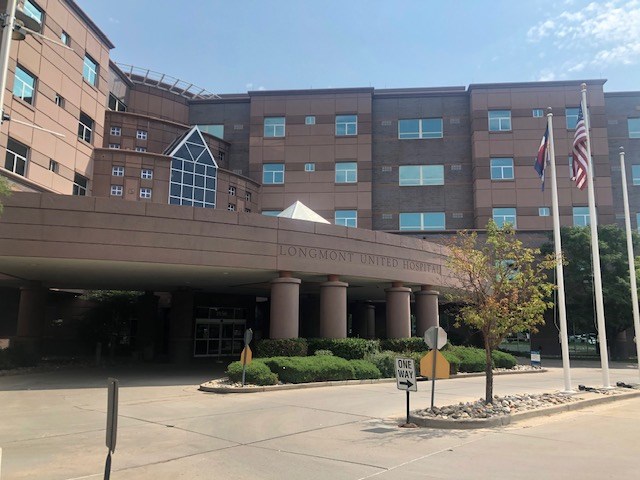Over the past 20 months people across the world have quickly learned how to read COVID-19 statistics. Everyday more and more numbers are pushed into the public view. To local hospitals, these numbers mean much more than digits on a page, they indicate the number of people crossing hospital thresholds and potentially staying awhile.
On Wednesday Governor Jared Polis spoke to Colorado at a press conference, once again urging Coloradans to seek out the COVID-19 vaccine and/or its booster. His admamancy was spurred by a large increase in people hospitalized due to the virus. As of Wednesday, that number had risen to 1,847 people occupying hospital beds across the state.
“All UCHealth hospitals are currently experiencing very high patient volumes, and this is especially true for our hospitals on the Front Range,” said Kelly Tracer, senior media relations specialist for UCHealth.
Both UCHealth and Centura Health care systems state that hospitals in the area are filling with patients diagnosed with COVID-19 and with non-COVID patients.
In both local hospitals — UCHealth Longs Peak and Longmont United — patients with non-emergent or non-urgent surgeries and procedures are being rebooked until hospitals can accommodate them.
As of Thursday, UCHealth reported 343 patients hospitalized with a COVID-19 diagnosis, only 77 of those patients are vaccinated.
The ICU is overrun with 109 cases, all but 10 remain unvaccinated. According to Tracer, some of the UCHealth hospitals are reporting 100% use of ICU beds. In these locations surge plans are being put into place to increase capacity which “may include converting non-ICU units into patient care areas with ICU capabilities,” Tracer said.
In the Centura Health system — to which Longmont United belongs — Meredith Ritchie, communications field advisor, reports surge plans have been implemented in several of its hospitals as well.
“We have had surge plans in place since the beginning of the pandemic, and we have utilized them as needed throughout; many of our hospitals are currently implementing them,” Ritchie states in an email.
The Leader requested COVID-19 patient numbers from Centura Health, however, none were provided.
The bed count is not the only struggle hospitals are facing. Hospital staff have worked long hours and pick up extra shifts to provide care to patients.
“After fighting COVID-19 for about 20 months now, our employees are tired but continue to do an exceptional job caring for patients. It is difficult for them to see another wave of COVID cases happening in our state,” Tracer said.
“Heading into its twentieth month, we have learned quite a lot on how to build resilience and focus on being stronger together,” Ritchie said.
Both hospital systems continue to provide staff with supports such as behavioral health and stress reduction services. UCHealth’s administrative team is pitching in at clinics. Centura Health uses a flex staffing system, allocating staff where the needs are greatest.
As of yesterday, Boulder County reported 237.9 new cases per 100,000 people over the past seven days. On Nov. 1, the positivity rate chart for the week reached 6.2%. This rate has dramatically increased since the beginning of October.
“Our patient care teams and our hospitals need the community’s help during this surge of patients with COVID-19. By getting vaccinated, wearing masks, social distancing and getting tested and isolating if you experience any symptoms of COVID-19, you can help minimize the spread of this virus and reduce the number of patients in our facilities,” she said.
In face of it all, both of Longmont’s hospitals state they are still accepting patients, further encouraging people with emergency medical conditions to seek help as soon as symptoms begin.
“Seeking prompt care leads to better outcomes and faster recovery. Symptoms that may suggest an emergency medical condition include chest pain, difficulty breathing, abdominal pain or signs of stroke. Facial droop, weakness on one side of the body and slurred speech may signal a stroke,” Tracer said.



